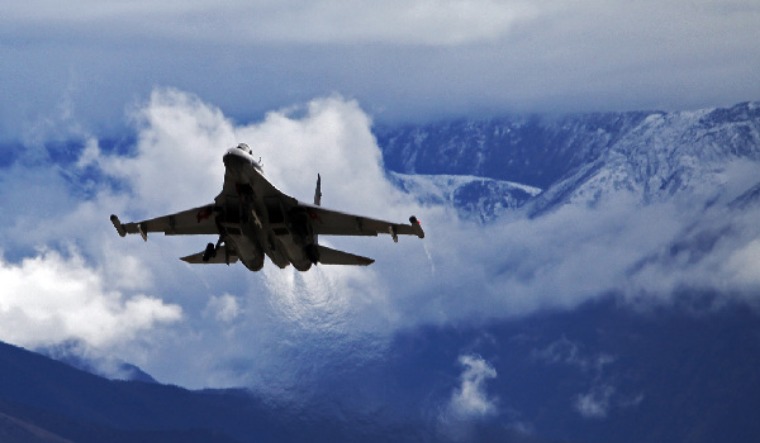
SOURCE: THE WEEK
BJP leader Subramanian Swamy ruffled feathers on Thursday on the ongoing tension with China over Ladakh. Swamy tweeted that China had moved “large numbers” of Russian Sukhoi fighter jets to the Tibet border. Swamy tweeted, “Moving of Russian built Sukhoi planes in large numbers by Chinese Airforce to Tibet border with India, is an indication that we have to get ready for retaliation.”
It is unclear on what was the basis for this tweet by Swamy. China has been deploying fighter and bomber aircraft to its bases in Tibet ever since tension over Ladakh started rising in May.
Earlier this week, media outlets reported China had deployed its J-20 stealth fighter to the Hotan airbase in Tibet. ANI had reported Indian agencies were monitoring seven Chinese bases in Tibet and Xinjiang. These seven bases were Hotan, Gar Gunsa, Kashghar, Hopping, Dkonka Dzong, Linzhi and Pangat.
Interestingly, both the Chinese People’s Liberation Army Air Force (PLAAF) and Indian Air Forces rely heavily on fighters derived from a common design from Russia’s Sukhoi aircraft design bureau, the Su-27. China first brought the Su-27 fighter in 1991, ending almost three decades of animosity with the former Soviet Union.
The Su-27 fighter was later developed by Russia into variants such as the multirole Su-30, the naval Su-33 (meant to operate on aircraft carriers) and the super-manoeuvrable Su-35. All these fighters have been purchased by the Chinese Air Force and Navy. Beijing also developed indigenous copies of these Sukhoi fighters such as the J-11, J-16 strike aircraft and J-15 naval fighter. The Indian Air Force operates a customised version of the Su-30, named the Su-30MKI. The Su-30MKI is numerically the most important fighter in the Indian Air Force, with around 250 aircraft in operation.
While precise figures are unavailable, the Chinese Air Force could have in excess of 500 fighters derived from the Sukhoi Su-27 design. The Sukhoi designs (Su-27, Su-30, J-11, J-16) are the only ‘fourth-generation’ fighters the Chinese Air Force operate, apart from the indigenously developed J-10 single-engine fighter.
A Pentagon report on the Chinese military released this week noted, “The PLAAF and PLAN Aviation continue to field greater numbers of fourth-generation aircraft (now more than 800 of 1,500 total operational fighters, not including trainers) and probably will become a majority fourth-generation force within the next several years.”






